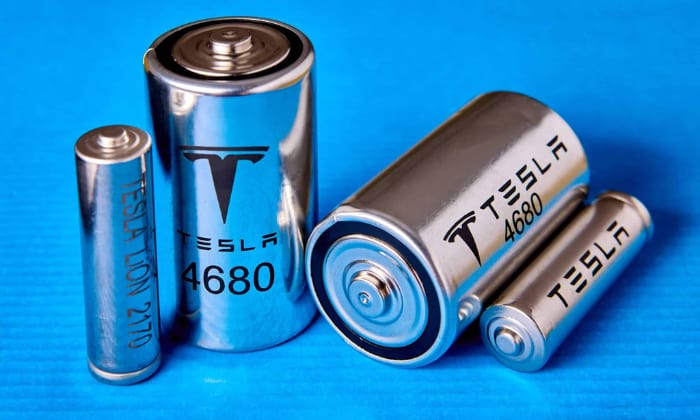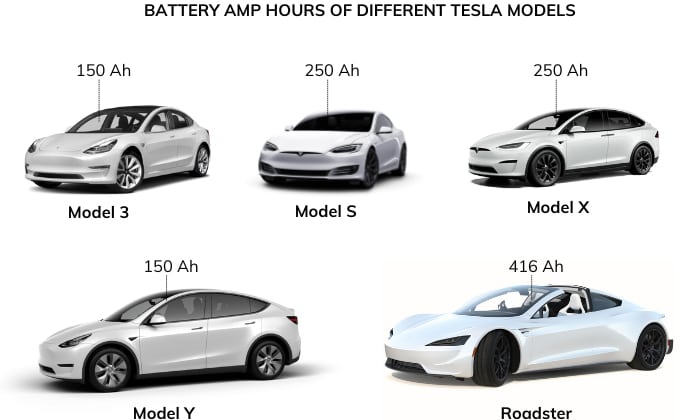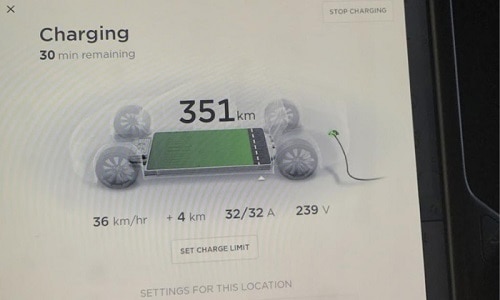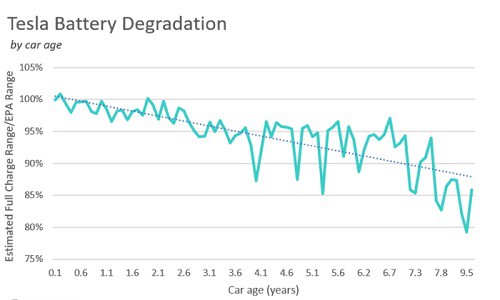As electric vehicles gain popularity, Tesla stands out as a leader in the industry thanks to its exceptional battery technology. If you’re considering a Tesla vehicle, understanding how many amp hours is a Tesla battery has is one thing you might need to consider.
This is because determining the amp hours of a Tesla battery is crucial when evaluating its range, power capacity, and overall performance. Therefore, let’s get into more detail down below.
Table of Contents
Amp-Hour Rating of Tesla Batteries
A battery’s amp-hour rating specifies how much current (in amperes) it can provide at a particular time. However, Tesla batteries are frequently rated in kilowatt-hours (kWh) rather than amp-hours (Ah).
On the other hand, it’s important to understand that the amp-hour rating of Tesla batteries varies depending on the specific model. Each model may have different module specs, such as amp-hour capacity, which indicates how much charge the battery can store.
Let’s have a look at the battery rating for each Tesla model below.
1. The Amp Hour Capacity of Different Tesla Models
Like many other electric cars, Tesla vehicles utilize lithium-ion battery packs to store and deliver energy. Below is a table featuring estimated amp-hour capacities for some popular Tesla models that will give you an insight into Tesla battery amp hours.
| Tesla Model | Type of Battery | Battery Capacity (kWh) | Voltage Rating | Battery Capacity (Ah) |
| Tesla Model 3 (Sedan) | Lithium-Ion | 60 kWh | 400 volts | 150 Ah |
| Tesla Model S (Hatchback) | Lithium-Ion | 100 kWh | 400 volts | 250 Ah |
| Tesla Model X (SUV) | Lithium-Ion | 100 kWh | 400 volts | 250 Ah |
| Tesla Model Y (SUV) | Lithium-Ion | 60 kWh | 400 volts | 150 Ah |
| Tesla Roadster (Two-Seater Passenger Car) | Lithium-Ion | 200 kWh | 480 volts | 416 Ah |
2. Calculating Amp-Hours for Tesla Batteries
To convert kWh to amp hour of a Tesla battery, you can use the formula:
\[ \text{Amp Hours} = \frac{\text{kWh} \times 1000}{\text{Battery Voltage}} \]
For instance, if a Tesla battery has a capacity of 100 kWh and operates at a nominal voltage of 400 volts, the amp-hour capacity can be calculated as follows:
\[ \text{Amp Hours} = \frac{100 \, \text{kWh} \times 1000}{400 \, \text{V}} = 250 \, \text{Ah} \]
Therefore, a Tesla battery with a 100 kWh capacity and a nominal voltage of 400v also has an estimated amp-hour rating of 250 Ah.
Factors Affecting Amp Hour Capacity
1. Environmental Conditions
Temperature plays a critical role in determining the efficiency and capacity of a Tesla battery pack. Extreme temperatures, both hot and cold, can negatively impact battery performance.
2. Driving Habits
Driving habits and patterns can affect the energy consumption of a Tesla vehicle, consequently influencing the amp-hour capacity. Aggressive driving, frequent acceleration, and abrupt braking can increase energy usage, reducing the range and overall Tesla battery capacity.
3. Charging Habits
The way a Tesla battery is charged can also impact its amp-hour capacity. Regularly charging the battery to its maximum capacity or charging it less than 20% of the time may contribute to battery degradation over time, reducing its overall capacity.
4. Age
The age of Tesla’s battery can also affect its capacity. Usually, the older the battery, the less energy it can store, resulting in a reduced amp-hour capacity compared to when it was new.
Frequently Asked Questions
How long will Tesla battery last?
Tesla batteries are expected to survive 1,500 battery cycles or more than 20 years. However, factors such as driving manner, charging, and environmental temperature can all significantly impact battery deterioration.
How much is a Tesla battery replacement?
The cost of replacing Tesla batteries varies depending on the model and the amount of electricity required. It might cost as little as $5,000 for basic models and up to $20,000 for luxury models.
What is the battery capacity of a Tesla after 10 years?
Even though Tesla batteries are designed to have good longevity and retain a significant portion of their capacity, their ages can still be subject to degradation. After ten years, the average Tesla user should expect an 18% decline.
Conclusion
Knowing how many amp hours is a Tesla battery plays a crucial role in determining its range, power capacity, and overall performance. However, it is also good to understand that different factors may affect its battery capacity ratings.
Always remember that different Tesla models have varying amp-hour capacities due to different battery specifications. Awareness of these capacities can help potential Tesla owners make informed decisions about their vehicle choice based on their driving needs and preferences.

I am Edwin Jones, in charge of designing content for Galvinpower. I aspire to use my experiences in marketing to create reliable and necessary information to help our readers. It has been fun to work with Andrew and apply his incredible knowledge to our content.







